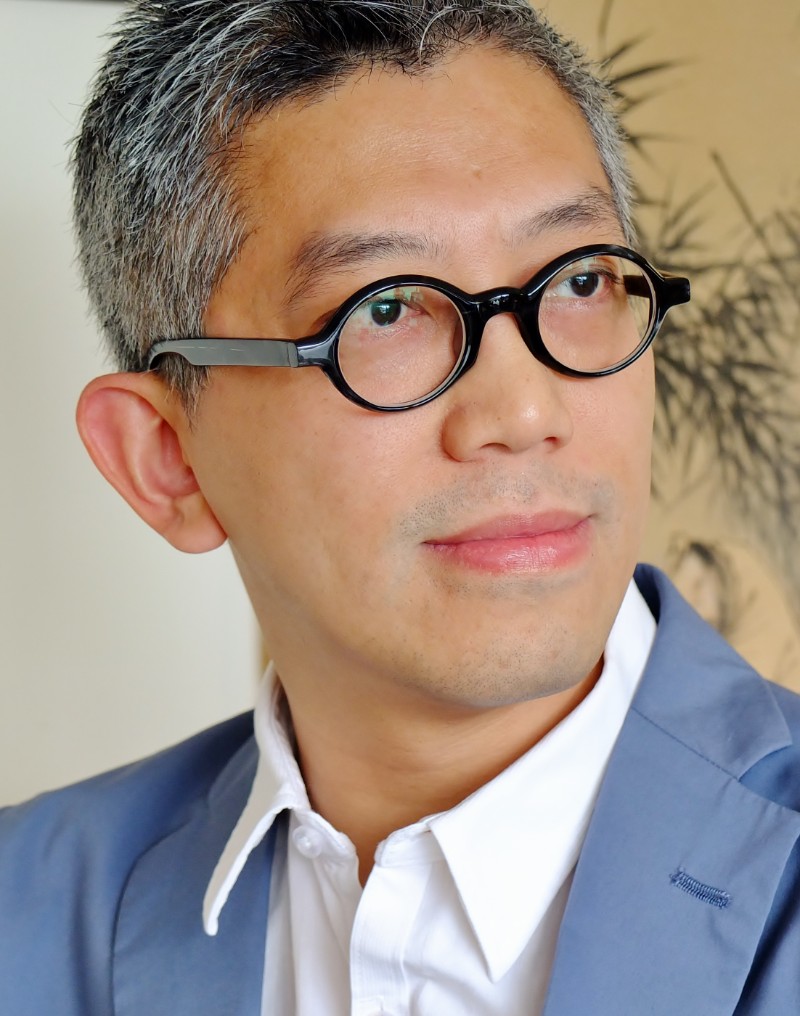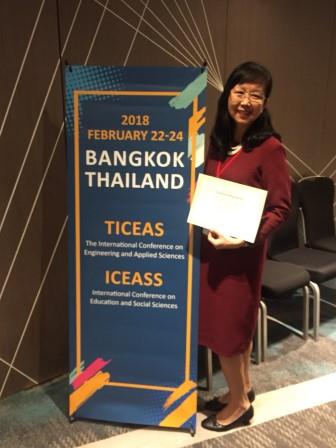The 4th International Conference on Education and Psychology (ICEAP 2018)
November 13-15, 2018 in Bangkok, Thailand
2018 Keynote Speaker
Keynote Speaeker #1
Dr Ricky, Yuk-Kwan Ng is the Head of the Centre for Learning and Teaching (CLT) of the Vocational Training Council (VTC), Hong Kong. With research interests in pedagogies in vocational and professional education and training (VPET), staff development in higher education institutions and organizational studies, he has published over 40 papers in Europe and Asia’s international conferences, journals and books. Dr Ng is also the Principal Investigator of a HK$21 million cross-institutional project funded by the Education Bureau of Hong Kong.
Topic Learn to Unlearn, Unlearn to Learn Abstract The concept of ‘unlearn’ is a déjà vu in the business sector to cope with the rapid changes in the market. Short product cycles, continuous obsolescence of know-hows, the urge for innovation and exploration of the unknowns are the key drives for entrepreneurs to unlearn for constant improvement to overcome uncertainty. As early as 1990, Toffler asserted that ‘the illiterate of the 21st Century are not those who cannot read and write but those who cannot learn, unlearn and relearn’. Some defined unlearn as giving up prior learnt concepts and deeply held assumptions to enable new learning (Klien, 2008; Pighin and Marzona, 2011). Interestingly, the concept and application of ‘unlearn’ in the education sector is rarely mentioned. Constructivism theory of learning and teaching stresses the alignment of prior learning to enable learners to build new theories and advance knowledge. To give up or to forget what had been learnt or generated is a paradox for many academics, without mentioning to ask students to unlearn in order to learn. Nonetheless, to unlearn is not to forget, it is rather to re-focus, to re-form thinking patterns and to view things with new perspectives to strive for new knowledge. Klien (1989) contended that unlearn is not to throw away knowledge but to put it aside temporarily and to parenthesize. Similarly, Schein (2006) proposed a process to unfreeze, re-freeze to receive new knowledge. Einstein’s quote of ‘insanity: doing the same thing over and over again and expecting different results’ best illustrates the concept of ‘unlearn’. Doing the same thing repeatedly, one begins to re-form prior knowledge by putting aside preconceptions and assumptions in order to generate new knowledge. Indeed, conducting research to rectify theories for advancement is academics’ regular practices. In this connection, this paper articulates the concept of ‘learn to unlearn’ and ‘unlearn to learn’ to reconsider learning and teaching practices, pedagogies and potentials. This paper also addresses to what extent ‘unlearn’ will contribute to the 21stCentury’s literacy and how it helps facilitate better learning and teaching experiences for innovation.
Introduction of Dr. Mayura SoonweraLocal Host
Dr. Mayura Soonwera
Department of Plant Production Technology, Faculty of Agricultural Technology, KingMongkut’s Institute of Technology Ladkrabang,Bangkok, Thailand
Dr. Mayura Soonwera received her Bachelor’s degree in Agricultural Sciences from KhonKhan University in 1981.She obtained her Master and PhD degree in Plant Diseases and Entomology from Kasetsart University,Thailand in 1984 and 1989, respectively. She worked in the National Research Council of Thailand for two years and worked in Tokai University, Japan for Biological Control of insect pests in 1991. At present time, she is working as Associate Professor at King Mongkut’s Institute of Technology Ladkraband (KMITL), Thailand. She has more than 60 publication in different international conferences and several papers in international journals. She has got five research patents in herbal pediculicides for head lice (Pediculus humanus capitis : Phthiraptera) treatments. Her areas of research interest are herbal pesticides or green pesticides for insect pests control, especially in urban insect pests such as mosquito, house fly, cockroach and head louse.
Welcome MessageLadies and Gentlemen,
Welcometo the 2018 International Conference on Education and Psychology (ICEAP), November 13 to 15, 2018 and welcome to Bangkok, Thailand.
This conference has 2 important topics of Education and Psychology. All topic is a very high calling, and I hope this conference provides you the opportunity to visit with friends, make new colleagues and share your experience in researching. May you find encouragement as you listen to speakers, participate in sessions, and interact with other researchers from other countries.
If you have the opportunity, I hope you will take time to enjoy many beautifulplace of Bangkok. Bangkok is the populous city of Thailand and world’s best city for four consective years by Travel& Leisure Magazine, this city as well known in Thai as “ Krung Thep Maha Nakhon” and the 5 best places to do in Bangkok :
|
1. |
Grand palace and Wat Prakeaw , these palace built in 1782 and Wat Prakeaw enshrines the Emerald Buddha andEmeraldBuddha as well known in Thai as “ Phra kaew morakot”. |
|
2. |
Wat Arun or The temple of dawn, these temple is one of the most beautiful and recognized in Southeast Asia. |
|
3. |
Chinatown at Yaowarat Road. |
|
4. |
Wat Pho, the gigantic reclining Buddha and traditional Thai massage. |
|
5. |
Chatuchak weekend market. |
Welcome to the 2018 International on Engineering and Natural Sciences again and I send my very best wishes to all. I hope to see you on the next conference.
Thank You.
Dr. Mayura Soonwera


